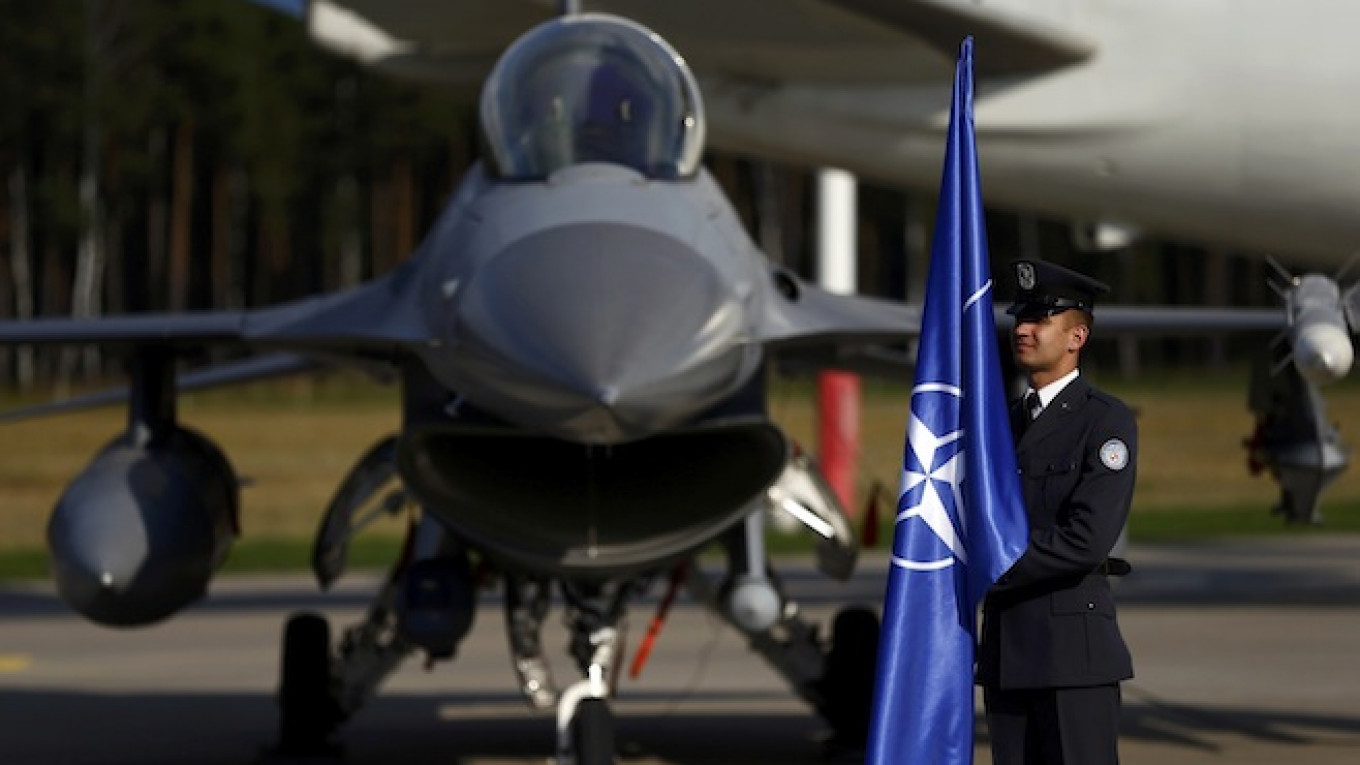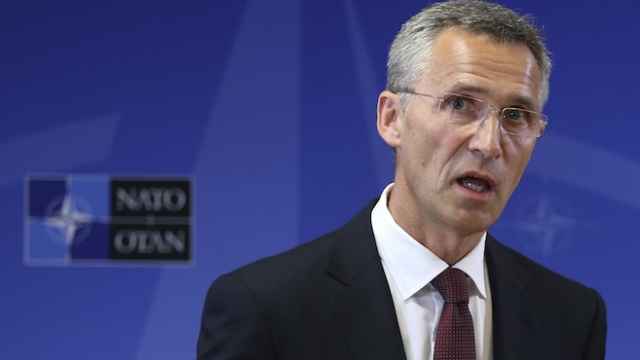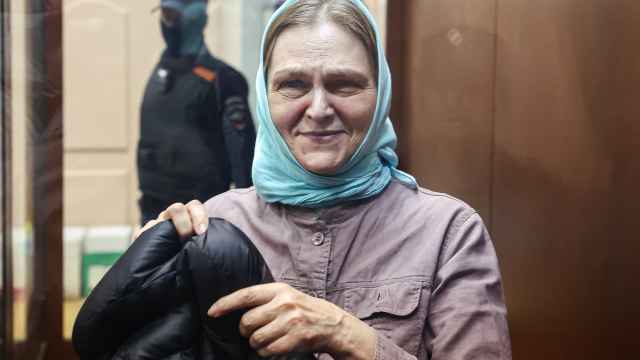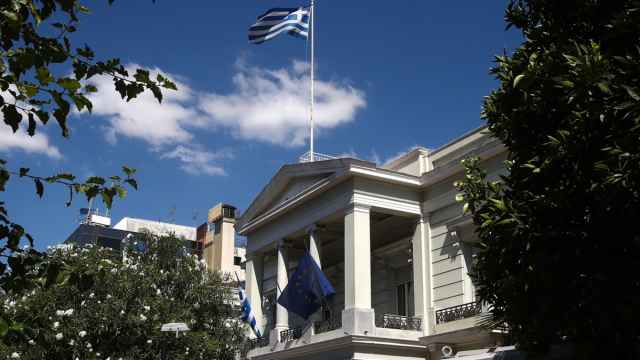LASK AIR FORCE BASE, Poland — NATO's plan to beef up its military presence in eastern Europe does not violate a post-Cold War deal struck with Russia on military force levels in the region, new alliance chief Jens Stoltenberg has said on a visit to Poland.
At an air force base in central Poland, Stoltenberg said he was committed to implementing a plan for a new "spearhead" rapid reaction force, conceived to reassure NATO member states in eastern Europe alarmed by Russia's intervention in Ukraine.
Moscow has said this increased military presence on its western flank could violate a 1997 agreement on the type and size of forces NATO can station in former Soviet states.
Asked about the pact in an interview at the Lask air force base, Stoltenberg said that NATO's increased military presence was in accordance with the U.S.-led bloc's international obligations.
"There is no contradiction between more military presence in this area and also respecting the rule-based international order," said Stoltenberg, a former Norwegian prime minister.
The previous NATO chief, Anders Fogh Rasmussen, was an outspoken critic of Russia's actions in Ukraine. Since his appointment to the job Stoltenberg has, at times, used more conciliatory language towards Russia.
His choice of Poland as the venue for his first trip outside NATO headquarters was symbolic. Poland is one of the most hawkish of the ex-Soviet alliance members towards Russia.
Stoltenberg, 55, who in his youth was an anti-war activist, is known for his skills in forging compromise and his knowledge of Russia. As Norwegian premier, he built a personal friendship with Russia's then-president, Dmitry Medvedev.
Radar Plane
But Stoltenberg said Monday that there had been no change in the fundamental position that NATO had to be, first and foremost, a strong military alliance.
"We need to keep NATO strong, we need to help keep our neighborhood stable in cooperation with our partners and we need a rock-solid bond between the U.S. and Europe.
"That creates the best foundation for a more constructive, more cooperative relationship with Russia," Stoltenberg said.
Relations between Moscow and NATO are at a post-Cold War low over Russia's actions in Ukraine, where Moscow — as well as supporting separatists — annexed the Crimean peninsula in March after protesters overthrew Kiev's pro-Moscow president.
NATO has made clear it will not intervene militarily in Ukraine, which is not an alliance member.
Stoltenberg spoke on board a NATO-operated AWACS early warning radar aircraft, in front of banks of computer screens. The plane was on the tarmac at the Lask airfield, used by U.S. and Polish aircraft as a base for joint exercises.
During his visit, he spoke to aircrews from the U.S., Canada, Portugal, Germany and other NATO states who, from bases elsewhere in the region, patrol the alliance's air space to detect any incursions by Russian aircraft.
He used tough language to describe Russia's role in Ukraine, saying in particular he was concerned about breaches of a cease-fire agreed between Kiev and the pro-Moscow separatist rebels in eastern Ukraine.
NATO accuses the Kremlin of using its military to support the rebels, an accusation that Russia has denied.
"Russia has violated international law and has violated its international commitment and violated the sovereignty and territorial integrity of Ukraine," Stoltenberg said.
"We call on Russia to respect international law and to respect the sovereignty and territorial integrity of Ukraine and to use their influence on separatists to make them respect the ceasefire," he said.
A Message from The Moscow Times:
Dear readers,
We are facing unprecedented challenges. Russia's Prosecutor General's Office has designated The Moscow Times as an "undesirable" organization, criminalizing our work and putting our staff at risk of prosecution. This follows our earlier unjust labeling as a "foreign agent."
These actions are direct attempts to silence independent journalism in Russia. The authorities claim our work "discredits the decisions of the Russian leadership." We see things differently: we strive to provide accurate, unbiased reporting on Russia.
We, the journalists of The Moscow Times, refuse to be silenced. But to continue our work, we need your help.
Your support, no matter how small, makes a world of difference. If you can, please support us monthly starting from just $2. It's quick to set up, and every contribution makes a significant impact.
By supporting The Moscow Times, you're defending open, independent journalism in the face of repression. Thank you for standing with us.
Remind me later.






